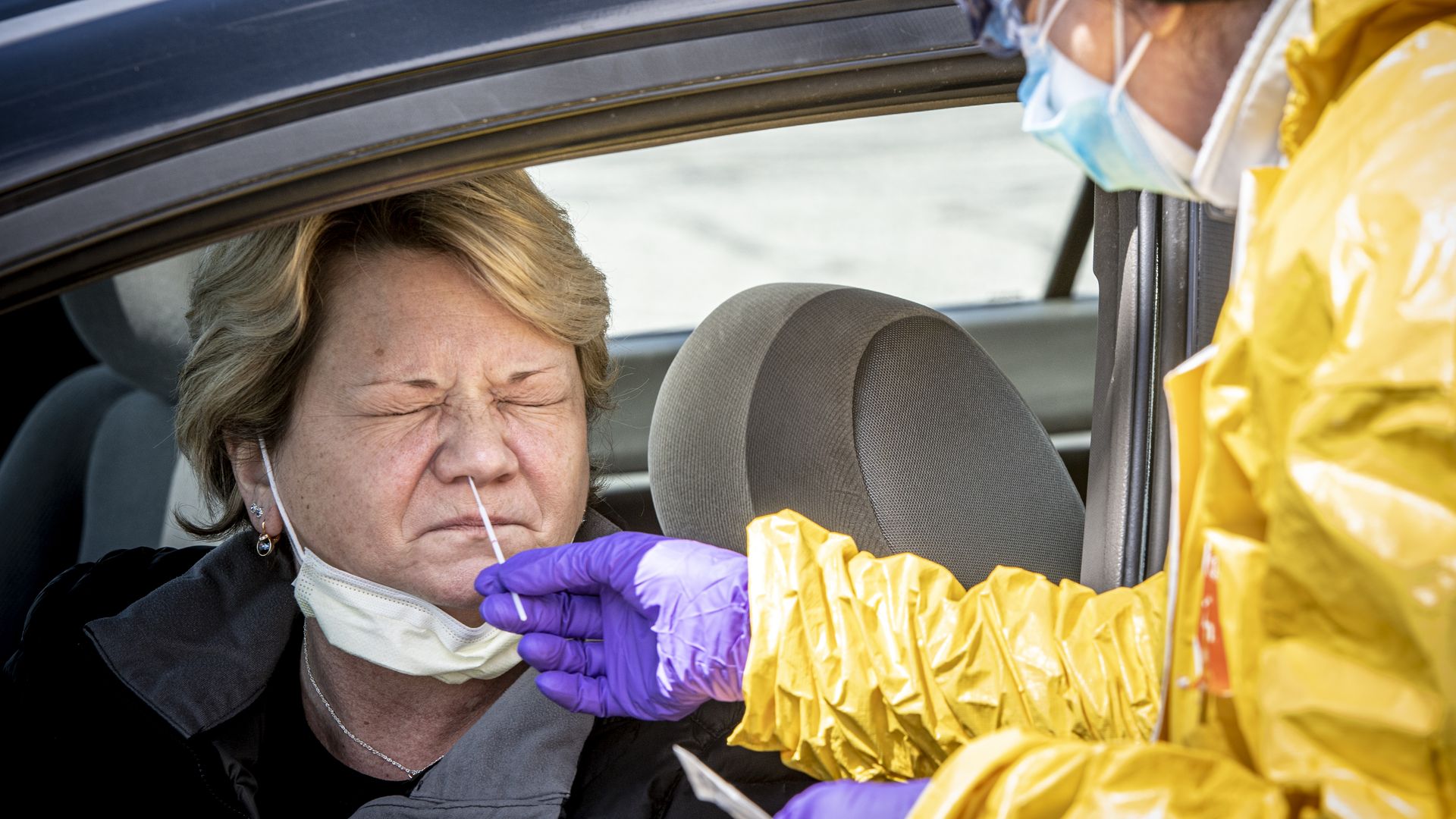Surprise medical bills in the coronavirus era
Add Axios as your preferred source to
see more of our stories on Google.

A health care worker tests a woman waiting in a car. Photo: J. Conrad Williams, Jr./Newsday RM via Getty Images
Rep. Katie Porter recently received an explanation of benefits from her insurer saying that, in addition to the $20 co-pay she paid when she got her coronavirus test, she may be on the hook for an additional $56.60.
The catch: The law requires insurers to cover coronavirus testing without cost-sharing. Porter knows that because she voted for it.
Why it matters: Containing the coronavirus depends on knowing who has it, and it's going to be much harder to get people to get tested if they think they'll have to pay for it. But it's becoming increasingly clear that patients may be vulnerable to surprise coronavirus bills.
Between the lines: Porter, who received a coronavirus test on March 23, has insurance through UnitedHealthcare and shared her explanation of benefits with Axios. Congress has required both the test itself and the associated care to be covered without cost-sharing.
- In a statement, UnitedHealth Group said it has waived member cost-sharing for coronavirus testing and treatment.
- "Some members received bills early on when there were not yet specific COVID-19 billing codes and during a period in which code adoption was first taking place," the company said, adding that it's waiving those charges and evaluating claims from earlier this year to make sure they were handled correctly.
- "We are not authorized to talk about [Porter's] specific situation without permission, however, what likely occurred is that her provider used the wrong billing code for the visit. To confirm if that’s the case and have it corrected, we encourage Rep. Porter to contact us so we can clarify with her directly."
Yes, but: There's a huge question of who should have to pay for coronavirus testing as it becomes more prolific, and many insurers — United included — have said that they'll only cover tests that are "medically necessary," at least without cost-sharing. It's unclear who will pay for tests that aren't deemed medically necessary.
- The federal government hasn't said who should pay for testing when, whether it be insurers, employers or the government itself. Insurers are questioning whether they should be on the hook for the hundreds of thousands of tests of asymptomatic people that public health experts say will need to be conducted every day.
- Even though Congress has tried to resolve payment disputes between insurers and out-of-network labs, there's a loophole that would allow patients to receive balance bills from out-of-network labs in some circumstances.
- If a patient sees an out-of-network doctor for a coronavirus test, they're vulnerable to receiving a surprise medical bill from this provider — just as they are under normal, non-coronavirus conditions, said Loren Adler, associate director of the USC-Brookings Schaeffer Initiative for Health Policy.
What they're saying: "We will not be able to truly reopen and rebuild if Americans rightly fear costly medical bills for visiting their health care providers for coronavirus tests," Porter writes in a letter to top Health and Human Services officials being sent today, asking the administration to implement the law more forcefully.
- She also asked for "formal, explicit guidance for insurers, providers, employers like nursing homes and assisted living facilities, and testing companies, as well as all 50 states...to ensure patients and workers are not asked to pay any costs."
